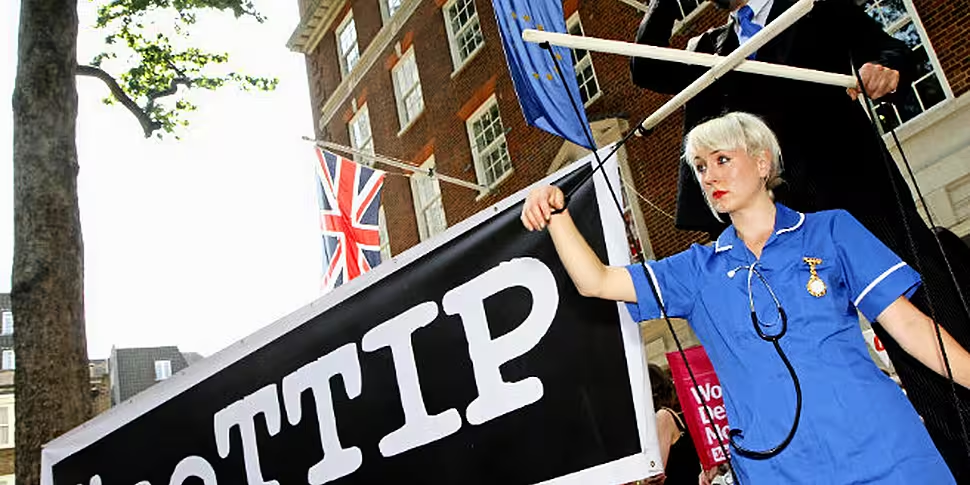In an unprecedented move, European Parliament canceled today's vote on the Transatlantic Trade and Partnership (TTIP) agreement between the EU and the US late last night.
The proposed deal has been controversial, and provoked mass protests in many countries - but the Irish Government has been one of the initiative's keenest supporters.
During a speech at the US Embassy in Dublin's annual economic conference in April, Taoiseach Enda Kenny issued the following message to Barrack Obama:
"Insofar as assuring the [US] President of Ireland's contribution to this, we have made it perfectly clear that we will work with our European colleagues and American connections to get this across the line."
Why was the vote stalled?
The Progressive Alliance of Socialists and Democrats (S&D) blocked the vote. The S&D Group has 190 members making it the second largest in the parliament - it is also the only political group in the European Parliament with representatives from all 28 member states.
Nessa Childers, Independent MEP for Dublin is the only Irish member.
😊 Parliament postpones TTIP vote http://t.co/j7vreB6u5m
— Nessa Childers MEP (@NChildersMEP) June 9, 2015
As today's scheduled vote approached amendments to the resolution arrived en masse, when the number of amendments reach 50 or higher the President of the European Parliament can cancel a vote.
Following the announcement a statement from S&D committed to "negotiating a fair Transatlantic Trade and Investment Partnership that will benefit citizens, consumers, patients and SMEs."
Concerns for democracy
The Investor-state Dispute Settlement (ISDS) is the most contentions aspect of TTIP - this allows businesses to take legal action against governments who act in ways which compromise the trade agreement and lead to smaller profits for businesses.
ISDS can mean that business interests could have more of a say in major policies than individual governments.
Those who are against TTIP argue that this is undemocratic, and lays the framework for companies to undermine the freedom of individuals states' and compromises their ability to create new policies.
For example, an ISDS provision in a free trade agreement between Australia and Hong Kong allowed the tobacco company Philip Morris to sue the Australian government after it introduced plain packaging laws.
Irish Government support
Ireland is a small open economy which is highly dependent on international trade - and whatever about the broader implications, all evidence suggests that the Irish economy will grow if TTIP goes through.
Research commissioned by the Irish Government and concerned with the economic impact of TTIP found that it would create 10,000 new jobs in Ireland and cause a permanent 1.1 percent expansion of the country's domestic economy.
The study was compiled by Copenhagen Economics, it found that a number of sectors of the economy would be boosted by an agreement, while other areas like Ireland's lucrative beef industry would shrink by between 2 and 3 percent.
Mr Kenny has said that he hopes to see the deal done before the end of 2015 - a number of independent and Sinn Fein MEPs have joined European movements against a deal.









